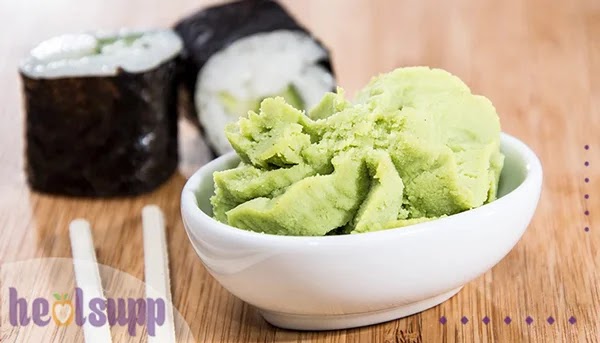"Recent Research Reveals Wasabi's Potential in Boosting Memory for the Elderly"
Introduction:
- Wasabi, with its vibrant green hue and potent aroma, is more than just a spicy condiment accompanying your sushi. This small, pungent root has a rich history, unique cultivation methods, and a range of health benefits that extend beyond its use as a flavor enhancer. Let's delve into the world of wasabi and explore why this humble plant is a staple in Japanese cuisine and gaining popularity worldwide.
Origins and Cultivation:
- Wasabi, scientifically known as Wasabia japonica, is native to Japan and has been cultivated there for centuries. The plant is a member of the Brassicaceae family, which includes mustard and cabbage. What sets wasabi apart is its preference for cool, shaded environments and pristine, running water. It is often found growing along riverbanks in Japan.
- Cultivating wasabi is no small feat, as the plant requires specific conditions to thrive. The root is typically grown in soil mixed with gravel and sand, ensuring proper drainage. The water must be clean and cool, simulating the natural habitat of wasabi. This meticulous cultivation process contributes to the unique flavor profile of the root.
Flavor and Culinary Uses:
- Wasabi's flavor is characterized by its intense, sinus-clearing heat, often described as a combination of spicy and sweet. The heat is sharp but short-lived, dissipating quickly to reveal underlying notes of sweetness. This distinctive profile makes wasabi a popular accompaniment to sushi and sashimi, as it enhances the flavors without overpowering them.
- Traditionally, wasabi is prepared by grating the fresh rhizome against a rough surface called an oroshi bo, typically made from sharkskin. The freshly grated wasabi has a more nuanced flavor compared to the ready-made paste commonly found in tubes. The paste is a blend of wasabi, horseradish, and mustard, which captures the essence of the fresh root while maintaining a longer shelf life.
Health Benefits:
- Beyond its culinary allure, wasabi also offers several health benefits. It contains compounds with antimicrobial properties, making it a natural preservative. Additionally, wasabi is rich in antioxidants, which can help neutralize harmful free radicals in the body. Some studies suggest that certain compounds in wasabi may have anti-inflammatory and anti-cancer properties, though more research is needed to fully understand these potential benefits.
Culinary Innovation and Global Appeal:
- While wasabi has deep roots in Japanese cuisine, its popularity has transcended cultural boundaries. Chefs around the world are incorporating wasabi into a variety of dishes, experimenting with its flavor profile in sauces, dressings, and even desserts. The unique combination of heat and sweetness adds an intriguing element to both traditional and contemporary culinary creations.
"Recent Research Reveals Wasabi's Potential in Boosting Memory for the Elderly"
NAGOYA
- A recent collaborative study between Japanese food manufacturer Kinjirushi Co. and Tohoku University has unveiled promising results regarding the impact of wasabi on the memory and cognitive abilities of the elderly. The focus of the research was on hexaraphane, a type of mustard oil present in small quantities in the roots and rhizomes of the traditional Japanese spice.
- The investigation aimed to explore whether hexaraphane, known for its antioxidant and anti-inflammatory properties, could positively influence cognitive function in healthy adults aged 60 and above. The study involved 72 participants within this age group, who were divided into two segments. One group received a daily supplement of 0.8 milligrams of hexaraphane, equivalent to 5 grams of wasabi rhizome, for a duration of 12 weeks, while the other group was administered a placebo.
- After the trial period, cognitive tests demonstrated a significant enhancement in episodic and working memories among the group receiving the hexaraphane supplement compared to the placebo group. Notably, improvements were observed in tasks such as processing short conversations, performing simple calculations, and matching names with faces.
- The study's findings were officially published on October 30 in the online edition of the European journal Nutrients. Kinjirushi Co. expressed interest in leveraging these discoveries to potentially develop new products aimed at enhancing memory.
- "With a global population that is aging, we aspire to harness the health benefits of wasabi to improve the healthy life expectancy and overall well-being of the elderly," stated an official from the Nagoya-based company.
Conclusion:
- Wasabi's journey from a traditional Japanese condiment to a global culinary sensation is a testament to its unique flavor and versatile applications. Whether enjoyed with sushi or infused into modern dishes, wasabi continues to captivate taste buds with its distinctive profile. As we explore the diverse world of flavors, let us not forget the small but mighty wasabi root, whose culinary magic continues to enchant food enthusiasts worldwide.









0 Comments